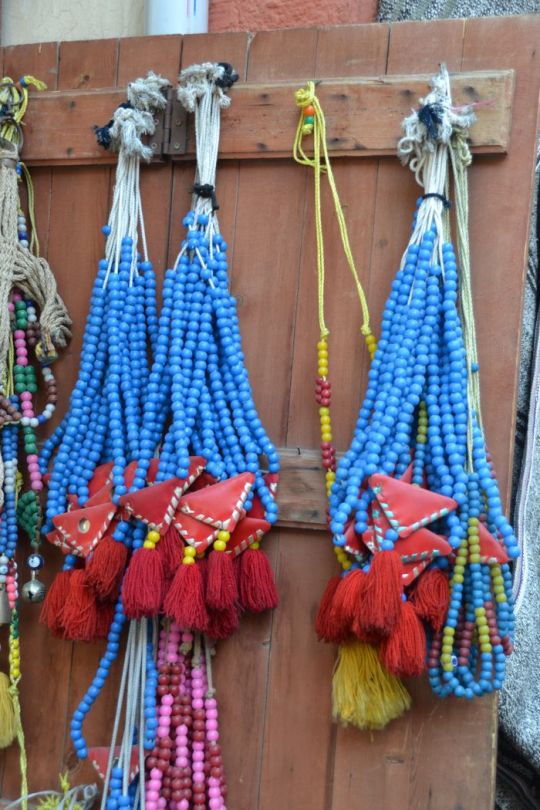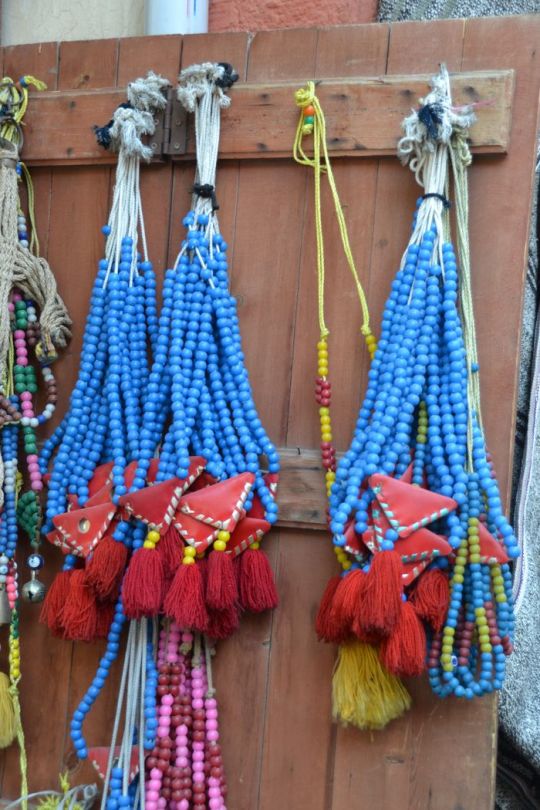#Great War between Austria and Turkey
Text

the great war - max verstappen
mercedes driver schumacher reader x max verstappen social media au (set from 2021 and beyond)
a/n: this was a ride lol and it took me forever but i liked my own idea and i hope its kinda good :) fc is sydney sweeney
————————————————————————
France, 2021.


————————————————————————
Austria, 2021
f1news

f1news: It seems that the Hamilton-Verstappen rivalry doesn't end with them, with the hostility between Y/N Schumacher and Max Verstappen amping up despite their childhood friendship. They are reportedly not on speaking terms after Verstappen's aggressive move on Schumacher to take the lead in the French Grand Prix that ended in her DNF. She is now reported to be on her Mercedes' side, hoping for her teammates eighth title, instead of her initial neutral stance.
ferrarilove: are we going through brocedes without them even fighting each other for the championship
leclercnorris: i can't believe a championship battle will take another pair of childhood best friends
sebvettelchamp: once again childhood best friends to platonic soulmates to enemies to strangers when will this end
hamiltonszn: as she should
hearteyesnorris: this season has more drama than i would've ever hoped for
————————————————————————
Great Britain, 2021


f1news:

f1news: Lewis Hamilton's teammate was not happy with his celebrations after the Silverstone Grand Prix, with Y/N Schumacher avoiding Mercedes' over the top win party even with her podium finish. She is very upset about it, considering Max Verstappen was in the hospital after the impact of the first-lap collision, where she was reportedly seen.
maxv33rstappen: At least someone has a moral backbone in that team.
scuderialewis: lmao she's such a double faced bitch
carlandofate: it's getting rowdy

————————————————————————
Belgium, 2021

————————————————————————
Italy, 2021
f1news

f1news: Max Verstappen and Y/N Schumacher arrive to the Monza paddock together, with a reconciliation evident after the Silverstone crash fiasco.
schumi33: WE WON
ynbabygirl: not a mercedes civil war brewing instead

f1news

f1news: In response to Y/N's statements about the Monza crash, Max said: "It was an unfortunate racing incident, not something I wanted to happen."
verstappensainz: they were JUST doing better i can't
checosakhir: what's worse the downfall of the mercedes power duo or the downfall of schumacherstappen
————————————————————————
Turkey, 2021
f1news

f1news: Turkey marks Y/N Schumacher's first win of the season. Max Verstappen congratulates her with a hug.
ricciardoheart: lewis' face at the hug was priceless
gaslyyyy: how about toto? lmfao
————————————————————————
United States, 2021

————————————————————————
Mexico, 2021

————————————————————————
Brazil, 2021




————————————————————————
Abu Dhabi, 2021
f1news

f1news: Y/N Schumacher on who she wishes will win the championship this weekend: "I'll be happy either way. So much has been made personal and it's not. When I realized that I was much happier and I have enjoyed the season and this titan battle more than ever. This isn't my battle, but they're both really good friends and I appreciate that too much to risk it. However, as Lewis' teammate I will do whatever I can to help."

y/nschumacher

y/nschumacher: It was a tough season with lots of mixed emotions. I'm so grateful for the team, and so proud of their Constructor's Championship. For now all I want to say is congratulations to lewishamilton for an incredible season; we will get you the eighth. And congratulations maxverstappen33! I have seen how hard you've worked for this dream, and now you're living it.
comments have been disabled
f1news

f1news: Y/N Schumacher seen at Max Verstappen's championship after party.
lewiswonder: oh she deserves a place in hell
formuladutch: orange army we move for her
schumacherstar: the death threats are gonna get so bad... jesus
————————————————————————
New Year's Eve, 2022
f1waggossip

f1waggossip: As if 2021 didn't have enough drama, we are starting off 2022 with a bang as Max and Y/N were spotted sharing a New Year's Eve kiss.
hamiltonteam44: no wonder the dumb bitch was so eager to see crashstappen win
lhfourtyfour: never beating the wh0re allegations!
schumacherprincess: so hateful and misogynistic. maybe listen to lewis' position on feminism once?
————————————————————————
2022
f1waggossip

f1waggossip: Despite being constantly asked about the nature of their relationship, Max Verstappen and Y/N Schumacher have refused to answer questions on the topic, focusing on the 2022 season as Red Bull and Mercedes struggle in the beginning of it. However, they are constantly seen outside of races, continuing to fuel rumors.
norrizzz: what do y'all want them to say lol they're probably fearing for their lives
schumachersiblings: for whatever its worth its cute lol
————————————————————————
2023
f1waggosip

f1waggossip: The secret everyone already knew is out. The Schumacherstappen relationship is confirmed with a very public kiss, after Max won his third world championship in Qatar.
————————————————————————
2024


y/nschumacher

y/nschumacher: Lewis, it has been the honor of a lifetime to race alongside you as your teammate. You have supported me from the moment you met me, raising me up when you rose up. Every part of me that is any good at racing has learnt it from you. I'm eternally grateful, and I wish you all the best in your new, red adventure. Don't ever forget your girl in black and green. Let's enjoy 2024!
lewishamilton: Love you, kid.
————————————————————————
2025
y/nschumacher

y/nschumacher: I vowed I would always be yours if we survived the great war. And then we became teammates four years later. I love you, Max. I can't wait to beat a four time world champion in equal machinery.
maxverstappen1: I love you. Always have.
#f1#f1 au#f1 fanfic#f1 smau#f1 social media au#f1 x reader#formula 1#max verstappen smau#max verstappen au#max verstappen x reader#max verstappen fanfic#max verstappen#MAX VERSTAPPEN SOCIAL MEDIA AU
1K notes
·
View notes
Text
Almost two millennia the dividing line between the Eastern and Western Roman Empires ran through the Balkans, and so the dividing line between the Catholic and Orthodox worlds has run through the region ever since. Later, after the Turks forced their way into Europe, the Balkans became another of the things it continues to be today: the home of Europe's only indigenous Muslim population, the point where European Christendom ends and Islam begins. Through many generations the Balkans were a prize fought over by Muslim Turkey, Catholic Austria, and Orthodox Russia. By 1914, Turkey having been pushed almost entirely out of the region, the contest was between Russia and Austria-Hungary only, with Turkey waiting on the sidelines in hope of recovering some of what it had lost.
The Russians wanted Constantinople above all. In pre-Christian times it had been the Greek city of Byzantium, and it then became the Eastern Roman capital until falling to the Turks. It dominated the long chain of waterways – the Dardanelles, the Sea of Marmara, the Bosphorus – that linked Russia's Black Sea ports to the Mediterranean. Possession of Constantinople would make the tsar – the words means “caesar” in Russian, as does kaiser in German – what Russia's rulers had long claimed to be: rightful leader of the whole Orthodox world, rightful heir to the old eastern empire. It was largely with Constantinople in mind that the Russians anointed themselves patrons and protectors of the Slavic and Orthodox populations in the Balkans, the Serbs included. As the nineteenth century unfolded and the Turkish empire entered a terminal state of decay, it was mainly Britain that kept the Russians from seizing Constantinople. The British were motivated not by any affection for the Turks but by simple self-interest. They feared that Russian expansion to the south would threaten their own position in the Middle East and ultimately their control of India.
— A World Undone: The Story of the Great War, 1914 to 1918 (G. J. Meyer)
#book quotes#g. j. meyer#a world undone: the story of the great war 1914 to 1918#history#classics#military history#politics#international relations#imperialism#religion#islam#christianity#catholicism#orthodox christianity#ww1#balkans#austria-hungary#serbia#ancient rome#byzantine empire#western roman empire#ottoman empire#turkey#russia#britain#india#constantinople#byzantium
2 notes
·
View notes
Text
different wars research
Since my game is based around war I am looking at some of the wars and how they started and what caused them. This will help me have a better understanding of what I should do with my cinematic. I am also going to look at some local history.
WWI- The assassination of Austrian Archduke Franz Ferdinand set off a chain of events that then led to the First World War. The war had lasted between 1914 to 1918. There were over 30 nations during WWI with two main sides the central powers, (consisting of mainly Germany, Austria-Hungary, and Turkey) and The Allies (consisting of mainly France, Great Britain, Russia, Italy, Japan and from 1917 united States).
WWII- After Adolf Hitler rose to power in Germany he soon invaded Poland in September of 1939 which drove Great Britain and France to declare war on Germany. The war was fought by 50 nations but there were two main powers between Germany, Italy and Japan (Axis powers) and great Britain, France, United States and Soviet union (Allied Powers).
Battle of Hastings- The battle of Hastings begun on the 14th October 1066 because of a disputed succession to the throne. Edward the confessor had failed to produce any children to succeed him so when he died his brother in law Harold Godwinson claimed the throne insisting the old king nominated him at his dying moments. Soon after he was crowned he had to fend off challenges to his rule. the first of which being Harold Hardrada, the king of Norway which he eventually won in September 1066 and then a second challenge came from william, Duke of Normandy (who was believed to have been promised the throne by Edward the confessor half way through his reign) three days later.
the first Crusade- The first crusade was organised by Western European Christians. Their primary objective was to stop the expansion of Muslim states, to reclaim for Christianity for the holy land in the Middle East. They desired to take Jerusalem away from Muslim control. They begun in 1096 and lasted nearly two centuries. It ended around 1099 when they were finally expelled from the kingdom in Syria. The crusades continued for several centuries after 1099 but declined rapidly during the 16th century.
Russia vs Ukraine- It is believed that the current Russian vs Ukraine conflict is a case of Russian not wanting Ukraine to join NATO and are trying to prevent it. Also it is believed that Russia sees Ukraine as Russian territory and are taking it back. This war has been going on since 2022. Russia is trying to reclaim Ukraine whilst Ukraine is defending itself from being invaded.
Israel vs Gaza- The Gaza-Israel conflict is a localized part of the Israeli-Palestinian conflict beginning in 1948, when 200,000 Palestinians fled or were expelled from their homes, settling in the Gaza Strip as refugees. Since then Israel has fought 15 wars against the Gaza Strip.
War of the Roses- The main cause of the war of the roses was the incompetent rule of a Henry VI of England and the ambition of Richard, Duke of York and then his son Edward. The conflict was between two sides of the Plantagenet family, the house of York and the house of Lancaster. The duke of York believed he had a better claim to the throne than Henry VI. The war lasted 30 years from 1455-1485.
Looking at all the wars a big similarity between them is that they are either fighting for power and/or land. A lot of the older wars were fought over claims to the throne.
0 notes
Text
Hetalia Headcanons: Austria, Hungary and all the rest
Czechia and Slovakia are long-lost siblings. That's why their separation wasn't a divorce. My authentic reaction when I learned that in the original, Czechia and Slovakia aren't siblings (c'mon man, we literally call each other "brothers"):

Human names of Czechia and Slovakia are Anežka Vodníčková and Miloslav Vodníček.
Nations age at different speeds, which is why Slovakia was a child untill like the 19th century, when he went trough a growth spurt, while Czechia was already a teenager by the time she moved in with Austria (despite them being born around the same time?). Romania had a similar growth spurt to Slovakia's, though he became an adult faster, while Serbia and Croatia were always around the same apparent age as Czechia and Hungary.
The relationship between Austria and Hungary was always tumultuous as all hell, because Austria wanted Hungary to follow his house rules and she didn't like that one bit. The conflict between them sometimes even turned violent, but luckily they managed to keep their conflicts away from the rest of the family, including baby Italy.
In the 17th century, Hungary tried to escape Austria's house five times, every time with the help of Romania. The first three times played out pretty much the same - Austria's house became a mess in Hungary's absence, while she again realized (unbeknownst to Austria) that actually, she hates Romania more, so when Austria came, willing to negotiate, she was always eager. The fourth and fifth time, Hungary was more determined than ever before and Austria more or less learned to get by without her, so their struggle was more bitter. In the end, Austria won on the battlefield and Hungary and Romania were both forced to submit. Also, all this time, Turkey was at their border, attempting to invade several times, so that was fun.
Czechia and Hungary were always each other's great rivals despite the fact that they often had the same boss, who usually made them play nice. Of course, their enmity was all power struggle and had nothing do to with the fact that Hungary basically held Czechia's little brother as a child slave. B-baka.
Czechia grew up with Holy Roman Empire, and since she was older than him, she was eventually able to dominate the household... Untill Austria grew up and took over, supported by Hungary.
Both Hungary and Czechia were at various points in the Middle Ages (when they were all children) engaged to Poland. Needless to say, in neither case was this arranged marriage considered for very long, to their immense relief, and in the end it was Lithuania who had to bite the bullet.
Czechia declared independence in 1618, and as a result caused a civil war between the Germanic brothers (the very many Germanic brothers that there were before they joined into Germany). She lost so badly she was basically enslaved by Austria as a result.
Ukraine was once "leased" by Russia to Austria. After living with abusive (Russia) or incompetent (Poland) masters her entire life, Austria's house was incredibly refreshing for her. She made friends with almost everyone here, including Czechia, Slovakia and Hungary, who as mentioned hate each other's guts, and overall enjoyed her experience there, gaining confidence along the way. When she had to return to Russia, she thus started to demand better treatment. This being Russia, it didn't go over well.
Slovakia and Czechia bonded only slowly over their stay at Austria's house. They notionally acknowledged their sibling bond around the start of the 19th century, and more or less got each other's back ever since.
Nobody had a good year 1848, but Austria's was undoubtedly worse than anyone else's, with EVERYONE in his household turning on him - Czechia, Hungary, Romania, even teenage Feliciano.
Czechia, Hungary and Romania united to demand GLORIOUS INDEPENDENCE, or at least renegotiations of the terms of their service and cohabitation. Slovakia was also there, ready to follow Czechia wherever she might go. Of them all, Hungary was the most gung-ho about independence, to Czechia's chagrin ("This madwoman will get us all killed."), since Czechia wanted to keep more wiggle room for negotiations instead of Hungary's all-or-nothing approach. Then there is the fact that this time, Czechia openly advocated for the freedom of her little brother, which Hungary didn't like one bit, and then Hungary also started to feud with Romania, Croatia and Serbia... Basically, the whole thing turned into a tragicomic mess so typical of Hetalia characters, which was finished by Austria reestablishing control over his unruly household with the help of noone other than Russia.
Feliciano escaped and tried to reunite with Romano, dreaming about living with his beloved long-lost brother... But of course, being Feliciano and Romano, they got lost on the way to their meeting spot. Feliciano was found by Austria and brought home, and the brothers' dream of reuinification remained unfulfilled for a while.
Okay. We all agree that the Austro-Hungarian Compromise of 1867 was the big wedding between Austria and Hungary, right? I've seen at least one fan who shares this headcanon with me. Of course, Czechia felt spurned, not because she had any romantic feelings about Austria, but because she was jealous of Hungary now becoming the mistress of the house. So she insisted on a polygamous union, which Austria of course refused and tried to somewhat mollify her with more freedom within the household. Czechia still held out hope that maybe, just maybe, when Austria will be at his weakest, she can seduce him, but then she slowly accepted that this isn't going to happen and came around to the idea of independence that she called stupid when Hungary dreamed about it before (#poeticcinema).
The whole household then remained more or less stable (with some minor squabbles and subject nations acting out) untill WWI, when the house was destroyed by the artillery and the subjects decided to leave their masters to their own devices. Austria left to take care of his badly injured cousin Germany (hence the divorce), only to then have the victorious nations forbid him from moving in with Germany, fearing that this could help Germany recuperate financially, which they didn't want. Czechia and Slovakia of course moved in together, only to realize cohabitation isn't easy, at which point they started to squabble, just like they did with other nations in Austria's household. Romania declared independence earlier, and now came to take the things he left at Hungary's house before. Hungary was left impoverished, it was actually kinda sad...
#hetalia#random history#slovakia#austria#hungary#czechia#czech republic#romania#damn i wrote an entire story arch there didn't i
1 note
·
View note
Text
Events 5.7
351 – The Jewish revolt against Constantius Gallus breaks out after his arrival at Antioch.
558 – In Constantinople, the dome of the Hagia Sophia collapses, twenty years after its construction. Justinian I immediately orders that the dome be rebuilt.
1274 – In France, the Second Council of Lyon opens; it ratified a decree to regulate the election of the Pope.
1487 – The Siege of Málaga commences during the Spanish Reconquista.
1544 – The Burning of Edinburgh by an English army is the first action of the Rough Wooing.
1625 – State funeral of James VI and I (1566-1625) is held at Westminster Abbey.
1664 – Inaugural celebrations begin at Louis XIV of France's new Palace of Versailles.
1685 – Battle of Vrtijeljka between rebels and Ottoman forces.
1697 – Stockholm's royal castle (dating back to medieval times) is destroyed by fire. It is replaced in the 18th century by the current Royal Palace.
1718 – The city of New Orleans is founded by Jean-Baptiste Le Moyne, Sieur de Bienville.
1763 – Pontiac's War begins with Pontiac's attempt to seize Fort Detroit from the British.
1794 – French Revolution: Robespierre introduces the Cult of the Supreme Being in the National Convention as the new state religion of the French First Republic.
1798 – French Revolutionary Wars: A French force attempting to dislodge a small British garrison on the Îles Saint-Marcouf is repulsed with heavy losses.
1824 – World premiere of Ludwig van Beethoven's Ninth Symphony in Vienna, Austria. The performance is conducted by Michael Umlauf under the composer's supervision.
1832 – Greece's independence is recognized by the Treaty of London.
1840 – The Great Natchez Tornado strikes Natchez, Mississippi killing 317 people. It is the second deadliest tornado in United States history.
1846 – The Cambridge Chronicle, America's oldest surviving weekly newspaper, is published for the first time in Cambridge, Massachusetts.
1864 – American Civil War: The Army of the Potomac, under General Ulysses S. Grant, breaks off from the Battle of the Wilderness and moves southwards.
1864 – The world's oldest surviving clipper ship, the City of Adelaide is launched by William Pile, Hay and Co. in Sunderland, England, for transporting passengers and goods between Britain and Australia.
1895 – In Saint Petersburg, Russian scientist Alexander Stepanovich Popov demonstrates to the Russian Physical and Chemical Society his invention, the Popov lightning detector—a primitive radio receiver. In some parts of the former Soviet Union the anniversary of this day is celebrated as Radio Day.
1915 – World War I: German submarine U-20 sinks RMS Lusitania, killing 1,198 people, including 128 Americans. Public reaction to the sinking turns many former pro-Germans in the United States against the German Empire.
1915 – The Republic of China accedes to 13 of the 21 Demands, extending the Empire of Japan's control over Manchuria and the Chinese economy.
1920 – Kyiv Offensive: Polish troops led by Józef Piłsudski and Edward Rydz-Śmigły and assisted by a symbolic Ukrainian force capture Kyiv only to be driven out by the Red Army counter-offensive a month later.
1920 – Treaty of Moscow: Soviet Russia recognizes the independence of the Democratic Republic of Georgia only to invade the country six months later.
1930 – The 7.1 Mw Salmas earthquake shakes northwestern Iran and southeastern Turkey with a maximum Mercalli intensity of IX (Violent). Up to three-thousand people were killed.
1931 – The stand-off between criminal Francis Crowley and 300 members of the New York Police Department takes place in his fifth-floor apartment on West 91st Street, New York City.
1937 – Spanish Civil War: The German Condor Legion, equipped with Heinkel He 51 biplanes, arrives in Spain to assist Francisco Franco's forces.
1940 – World War II: The Norway Debate in the British House of Commons begins, and leads to the replacement of Prime Minister Neville Chamberlain with Winston Churchill three days later.
1942 – World War II: During the Battle of the Coral Sea, United States Navy aircraft carrier aircraft attack and sink the Imperial Japanese Navy light aircraft carrier Shōhō; the battle marks the first time in naval history that two enemy fleets fight without visual contact between warring ships.
1945 – World War II: Last German U-boat attack of the war, two freighters are sunk off the Firth of Forth, Scotland.
1945 – World War II: General Alfred Jodl signs unconditional surrender terms at Reims, France, ending Germany's participation in the war. The document takes effect the next day.
1946 – Tokyo Telecommunications Engineering (later renamed Sony) is founded.
1948 – The Council of Europe is founded during the Hague Congress.
1952 – The concept of the integrated circuit, the basis for all modern computers, is first published by Geoffrey Dummer.
1954 – Indochina War: The Battle of Dien Bien Phu ends in a French defeat and a Viet Minh victory (the battle began on March 13).
1960 – Cold War: U-2 Crisis of 1960: Soviet leader Nikita Khrushchev announces that his nation is holding American U-2 pilot Gary Powers.
1986 – Canadian Patrick Morrow becomes the first person to climb each of the Seven Summits.
1991 – A fire and explosion occurs at a fireworks factory at Sungai Buloh, Malaysia, killing 26.
1992 – Michigan ratifies a 203-year-old proposed amendment to the United States Constitution making the 27th Amendment law. This amendment bars the U.S. Congress from giving itself a mid-term pay raise.
1992 – Space Shuttle program: The Space Shuttle Endeavour is launched on its first mission, STS-49.
1992 – Three employees at a McDonald's Restaurant in Sydney, Nova Scotia, Canada, are brutally murdered and a fourth permanently disabled after a botched robbery. It is the first "fast-food murder" in Canada.
1994 – Edvard Munch's painting The Sc is recovered undamaged after being stolen from the National Gallery of Norway in February.
1998 – Mercedes-Benz buys Chrysler for US$40 billion and forms DaimlerChrysler in the largest industrial merger in history.
1999 – Pope John Paul II travels to Romania, becoming the first pope to visit a predominantly Eastern Orthodox country since the Great Schism in 1054.
1999 – Kosovo War: Three Chinese citizens are killed and 20 wounded when a NATO aircraft inadvertently bombs the Chinese embassy in Belgrade, Serbia.
1999 – In Guinea-Bissau, President João Bernardo Vieira is ousted in a military coup.
2000 – Vladimir Putin is inaugurated as president of Russia.
2002 – An EgyptAir Boeing 737-500 crashes on approach to Tunis–Carthage International Airport, killing 14 people.
2002 – A China Northern Airlines MD-82 plunges into the Yellow Sea, killing 112 people.
2004 – American businessman Nick Berg is beheaded by Islamic militants. The act is recorded on videotape and released on the Internet.
0 notes
Text
Blog Post #4
500 BC –The Arrival of the Helvetians
In Switzerland’s History, one of the biggest events that occurred was the Helvetians came to Switzerland. Past beliefs and assumptions thought the Celts settled in Europe's "Atlantic Fringe”, which are countries such as Ireland, Wales, or Scotland. The truth is, the Celtic tribes were once spread across Europe, from the as far east as Turkey, through what is now Slovenia and Austria, and west to France, Spain, and even the British Isles. The Helvetians were the largest of around 11 neighboring Celtic tribes living in the area that is now Switzerland. They began their slow migration from the south of modern Germany around 2,500 years ago. Around 100 BC, the Helvetians found themselves under pressure from Germanic tribes, descending from the north and east of Europe. They settled along the Swiss lakes and rivers, which were becoming the hub for trade routes, and built up a string of over 400 villages and a dozen fortified towns.
This is a significant part of Swiss history, that helped establish the Switzerland we know today. Today in Swiss currency, CH represents the Confederation Helvetians. This signifies the development of the land that became Switzerland. Today this holds significant value for Swiss citizens because these were some of their ancestors that helped build the place, they call home today. If the Helvetians didn’t come first, Switzerland could look very different than we know it today, especially the culture and traditions that have been a huge part of the country for centuries. The traditions we know today have evolved from 500 BC but the pride and love for the country, I believe carried over for centuries.
1291–Independence of Switzerland
When Switzerland gained independence, it was a huge achievement when it spits away from the Holy Roman Empire. By 1353 the small Swiss nation had grown to eight cantons. In the 1500s conflict grew between Catholic and Protestant cantons following Zwingli’s (Protestant) Reformation. This battle over religious freedom was a huge part and motivation for gaining Switzerland’s independence. In 1648 the Treaty of Westphalia granted Switzerland its independence from the Holy Roman Empire of the German Nation and recognized Swiss neutrality for the first time
If the Treaty of Westphalia wasn’t signed, it wouldn’t be the Switzerland we know today. The culture would look very different and may not be its own country, instead staying under the rule of the Holy Roman Empire and potentially may have ended up a part of Germany. Swiss Independence Day on August 1st is a very big day for Switzerland. Just like the 4th of July, in Switzerland, there are parades, fireworks, and parties. Without the achievements of independence, these events that help expose the culture of Switzerland wouldn’t exist.
1815–Switzerland’s Neutral Stance
One thing that Switzerland is known for across the world is its neutral stance. The spotlight shined on this during both World Wars, since Switzerland is the “heart of Europe.” Though this neutral stance has been a huge part of Switzerland’s history before World War One broke out. Switzerland gained neutrality in 1515 a status guaranteed by the great powers of Europe after the Napoleonic Wars in 1815.
Switzerland’s neutrality stance has deeper roots than any of Europe’s other neutral states: Sweden (1815), Ireland (1921), Finland (1948), and Austria (1955). Neutrality means avoiding participation in a war between other states. The status of neutrality has not only protected Switzerland from war. Being neutral allows the country to act as a mediator. Its diplomats often represent the interests of countries that have no relations with each other.
Being the heart of Europe, Switzerland without its neutral standing would have torn the country apart and would have caused devastation country. Having the power of a mediator has protected the country for centuries and it is something Switzerland is proud of. This has helped not just Swiss culture but also other cultures around the world. Without the neutral stance, the country could have possibly looked completely different compared to how it looks today.

youtube
The link above is a short documentary that shares the history and important cultural practices of Switzerland. This film touches on important products that Switzerland is known for such as, Swiss Army Knives, chocolate, and cheese, but more importantly that Switzerland is so much more than that. This film goes in-depth about the identity of Switzerland that makes Switzerland the country it is.
Works Cited
Mowbray, S. (2017, July 7). 12 moments that shaped Switzerland's history. Culture Trip. Retrieved September 22, 2022, from https://theculturetrip.com/europe/switzerland/articles/12-moments-that-shaped-switzerlands-history/
Fowler, J. (2017, August 4). Exploring the Celtic history of Switzerland. SWI swissinfo.ch. Retrieved September 22, 2022, from https://www.swissinfo.ch/eng/exploring-the-celtic-history-of-switzerland/1643716#:~:text=The%20Helvetians%20were%20the%20largest,Germany%20around%202%2C500%20years%20ago.
History of Switzerland. ThenGerman Way. (n.d.). Retrieved September 22, 2022, from https://www.german-way.com/history-and-culture/switzerland/history-of-switzerland/
Neutrality and Isolationism in Switzerland. Expatica. (2022, August 7). Retrieved September 22, 2022, from https://www.expatica.com/ch/moving/society-history/neutral-switzerland-107842/
0 notes
Text
When did ww1 start

#When did ww1 start full
2) Act raised the age limit to 51.Ĭonscription was extended until 1920 to enable the army to deal with continuing trouble spots in the Empire and parts of Europe.ĭuring the whole of the war conscription had raised some 2.5 million men. In 1918 during the last months of the war, the Military Service (No. Although many men failed to respond to the call-up, in the first year 1.1 million enlisted. Effects of conscriptionĬonscription was not popular and in April 1916 over 200,000 demonstrated against it in Trafalgar Square. This imposed conscription on all single men aged between 18 and 41, but exempted the medically unfit, clergymen, teachers and certain classes of industrial worker.Ĭonscientious objectors – men who objected to fighting on moral grounds– were also exempted, and were in most cases given civilian jobs or non-fighting roles at the front.Ī second Act passed in May 1916 extended conscription to married men.Ĭonscription was not applied to Ireland because of the 1916 Easter Rising, although in fact many Irishmen volunteered to fight. It eventually would start with Germany invading Belgium. When did World War One start The outbreak of the war began on June 28, 1914, when Austrian Archduke Franz Ferdinand and his wife were shot dead in the Bosnian capital, Sarajevo. WW1 also started with the assassination of Archduke Franz Ferdinand. Because of the help given by Turkey to the German attack of Russia, Russia declared war on Turkey. WW1 came with new inventions and strategies such as tanks, gas attacks, and trenches brought in more deadly. Turkey entered the war on the side of the central powers and gave help to a German naval bombardment of Russia. In January 1916 the Military Service Act was passed. made war more deadly and dangerous than previous wars before.
#When did ww1 start full
JReacting to the Austrian attack on Serbia, Russia begins full mobilization of its troops. The government saw no alternative but to increase numbers by conscription – compulsory active service. Parliament was deeply divided but recognised that because of the imminent collapse of the morale of the French army, immediate action was essential. JAustrian warships bombard Belgrade, capital of Serbia. But this was not enough to keep pace with mounting casualties. June 30 Politics: Greece declares war on the Central powers. 'Lange Max', world's largest gun fires for the first time from Koekelare to Dunkirk (50 km). June 25 Western: First American troops land in France. Lord Kitchener's campaign – promoted by his famous "Your Country Needs You" poster – had encouraged over one million men to enlist by January 1915. First successful heavy bomber raid on London done by the Gotha G.IV. Within a year of Great Britain declaring war on Germany in August 1914, it had become obvious that it was not possible to continue fighting by relying on voluntary recruits. The simplest answer is that the immediate cause was the assassination of Franz Ferdinand, the archduke of Austria-Hungary.

0 notes
Photo

Sunset at ‘The Vines’. The Vines is a villa located in the Ta' Xbiex sea front. Once a Masonic lodge, this building sustained damage during World War II, but was subsequently changed by its current owners into a more modern villa. It is currently undergoing further restoration work. BIL-MALTI Il-villa ‘The Vines’ fix-Xatt ta' Ta' Xbiex. ABOUT TA’ XBIEX Ta’ Xbiex is a seaside ‘ex-village’ in central-eastern Malta. Although it has today changed and expanded dramatically, it is still considered as one of the most beautiful places to live in Malta. The locality is sandwiched between Msida and Gżira, and only a couple thousand people reside in it. Ta' Xbiex is home to an exquisite villa area with some unique villas worth millions of euros. The town also features one of the most beautiful and embellished government housing estates dating from the 1970s. The villas date further back, to the 1930s. FOREIGN EMBASSIES Ta’ Xbiex is home to a number of foreign embassies, including the embassies and residences of the ambassadors of Italy, Australia, Turkey, Netherlands, Ireland, Greece, Spain, Japan, Egypt, Austria and the British High Commission. A PERFECT PLACE FOR A WALK, A SWIM AND A BITE! The Ta’ Xbiex coast-road is a great stretch to enjoy a relaxing evening walk by the sea. The side of the road is lined with coloured benches with ample spaces to sit on and enjoy the sea view after a stroll. The same opportunities are offered from the ‘Rampa ta’ Ta’ Xbiex’: the Ta’ Xbiex Terrace road above (and parallel to) to road below. AMENITIES All the services you could need are available here. The area is in fact dense in restaurants, kiosks, ice cream and food trucks, bus stops for public transport and car charging spots for electric vehicles. Small beaches line the coast-road and are very easily accessible even for older people, providing a very safe area to swim at as they are sheltered within the inlet harbour area. WHAT’S IN A NAME? The name Ta’ Xbiex seems to have evolved evolved from “tax-xbiek”, which means “a place of nets”. (at Ta' Xbiex) https://www.instagram.com/p/CjR8NWfojVD/?igshid=NGJjMDIxMWI=
0 notes
Photo

Russia in the Balkan peninsula
We are accustomed, again, to treat the position of Russia in the Balkan peninsula as one of influence more or less continuous, but as not practically affecting the Eastern Mediterranean and its lands. Russia has not yet effected any real footing on the peninsula. She finds it occupied by Roumania, Bulgaria, Servia, Austria, Turkey, and Greece. Over these Russia exercises an intermittent influence, but never controls them all at the same time; and she often finds one or more of them in direct opposition.
Accordingly, we do not regard the Muscovite as dominant in the Balkan peninsula, much less in the Archipelago. But place Russia on the wonderful throne of the Bosphorus, with the inevitable addition of Adrianople and the Maritza Valley, at the very least, in Southern Rou- melia, and the whole situation is transformed. The possession of Constantinople by Russia, with her enormous resources and grand navy, means the control by Russia of the Bosphorus, the Marmora, the Hellespont, and, at least, of South-Eastern Roumelia.
Could it stop there? Would the absolute chief of an army of two millions and a half, with the third great navy of the world, fall into slumber in his new and resplendent capital, rebuild the Seraglio, or amuse himself in Yildiz Kiosk? He would immediately create the second great navy of the world, and for all Mediterranean purposes his navy would be at least the rival of the first guided turkey tours. How long would Roumania and Bulgaria remain their own masters when they found themselves between his countless legions on the Pruth and his great fleet in the Golden Horn? What would Servia say to the change — or Austria?
Musulmans in Roumelia
Would the Albanians be content? And what would become of the Musulmans in Roumelia? The prospect opens at least five or six international imbroglios with knotty problems of race, religion, patriotism, and political sympathies and antipathies. Any one of these is enough to cause a European crisis — and even an embittered war.
In the long run, though it might be a struggle prolonged for a century, Russia would in some form or other command or control the entire peninsula from the Danube to Cape Matapan; not, perhaps, counting it all strictly in Russian territory, but being dominant therein as is Victoria in the Indian peninsula. The geographical conditions of Constantinople are so extraordinary; they offer such boundless opportunities to a first-class military and naval power; they lie so curiously ready to promote the ambition of Russia, that the advent of the Czar to the capital of the Sultan would produce a change in Europe greater than any witnessed in the nineteenth century.
The absolute monarch of a hundred millions, with an army of two and a half millions, possessing sole command of the Black Sea, Bosphorus, Marmora, and Hellespont, together with the incomparable naval basis which is afforded by this chain of four inland seas, would unquestionably be supreme master of the whole of Eastern Europe, which would then extend under one sceptre from the Arctic Ocean to the Greek Archipelago.
0 notes
Photo

Russia in the Balkan peninsula
We are accustomed, again, to treat the position of Russia in the Balkan peninsula as one of influence more or less continuous, but as not practically affecting the Eastern Mediterranean and its lands. Russia has not yet effected any real footing on the peninsula. She finds it occupied by Roumania, Bulgaria, Servia, Austria, Turkey, and Greece. Over these Russia exercises an intermittent influence, but never controls them all at the same time; and she often finds one or more of them in direct opposition.
Accordingly, we do not regard the Muscovite as dominant in the Balkan peninsula, much less in the Archipelago. But place Russia on the wonderful throne of the Bosphorus, with the inevitable addition of Adrianople and the Maritza Valley, at the very least, in Southern Rou- melia, and the whole situation is transformed. The possession of Constantinople by Russia, with her enormous resources and grand navy, means the control by Russia of the Bosphorus, the Marmora, the Hellespont, and, at least, of South-Eastern Roumelia.
Could it stop there? Would the absolute chief of an army of two millions and a half, with the third great navy of the world, fall into slumber in his new and resplendent capital, rebuild the Seraglio, or amuse himself in Yildiz Kiosk? He would immediately create the second great navy of the world, and for all Mediterranean purposes his navy would be at least the rival of the first guided turkey tours. How long would Roumania and Bulgaria remain their own masters when they found themselves between his countless legions on the Pruth and his great fleet in the Golden Horn? What would Servia say to the change — or Austria?
Musulmans in Roumelia
Would the Albanians be content? And what would become of the Musulmans in Roumelia? The prospect opens at least five or six international imbroglios with knotty problems of race, religion, patriotism, and political sympathies and antipathies. Any one of these is enough to cause a European crisis — and even an embittered war.
In the long run, though it might be a struggle prolonged for a century, Russia would in some form or other command or control the entire peninsula from the Danube to Cape Matapan; not, perhaps, counting it all strictly in Russian territory, but being dominant therein as is Victoria in the Indian peninsula. The geographical conditions of Constantinople are so extraordinary; they offer such boundless opportunities to a first-class military and naval power; they lie so curiously ready to promote the ambition of Russia, that the advent of the Czar to the capital of the Sultan would produce a change in Europe greater than any witnessed in the nineteenth century.
The absolute monarch of a hundred millions, with an army of two and a half millions, possessing sole command of the Black Sea, Bosphorus, Marmora, and Hellespont, together with the incomparable naval basis which is afforded by this chain of four inland seas, would unquestionably be supreme master of the whole of Eastern Europe, which would then extend under one sceptre from the Arctic Ocean to the Greek Archipelago.
0 notes
Photo

Russia in the Balkan peninsula
We are accustomed, again, to treat the position of Russia in the Balkan peninsula as one of influence more or less continuous, but as not practically affecting the Eastern Mediterranean and its lands. Russia has not yet effected any real footing on the peninsula. She finds it occupied by Roumania, Bulgaria, Servia, Austria, Turkey, and Greece. Over these Russia exercises an intermittent influence, but never controls them all at the same time; and she often finds one or more of them in direct opposition.
Accordingly, we do not regard the Muscovite as dominant in the Balkan peninsula, much less in the Archipelago. But place Russia on the wonderful throne of the Bosphorus, with the inevitable addition of Adrianople and the Maritza Valley, at the very least, in Southern Rou- melia, and the whole situation is transformed. The possession of Constantinople by Russia, with her enormous resources and grand navy, means the control by Russia of the Bosphorus, the Marmora, the Hellespont, and, at least, of South-Eastern Roumelia.
Could it stop there? Would the absolute chief of an army of two millions and a half, with the third great navy of the world, fall into slumber in his new and resplendent capital, rebuild the Seraglio, or amuse himself in Yildiz Kiosk? He would immediately create the second great navy of the world, and for all Mediterranean purposes his navy would be at least the rival of the first guided turkey tours. How long would Roumania and Bulgaria remain their own masters when they found themselves between his countless legions on the Pruth and his great fleet in the Golden Horn? What would Servia say to the change — or Austria?
Musulmans in Roumelia
Would the Albanians be content? And what would become of the Musulmans in Roumelia? The prospect opens at least five or six international imbroglios with knotty problems of race, religion, patriotism, and political sympathies and antipathies. Any one of these is enough to cause a European crisis — and even an embittered war.
In the long run, though it might be a struggle prolonged for a century, Russia would in some form or other command or control the entire peninsula from the Danube to Cape Matapan; not, perhaps, counting it all strictly in Russian territory, but being dominant therein as is Victoria in the Indian peninsula. The geographical conditions of Constantinople are so extraordinary; they offer such boundless opportunities to a first-class military and naval power; they lie so curiously ready to promote the ambition of Russia, that the advent of the Czar to the capital of the Sultan would produce a change in Europe greater than any witnessed in the nineteenth century.
The absolute monarch of a hundred millions, with an army of two and a half millions, possessing sole command of the Black Sea, Bosphorus, Marmora, and Hellespont, together with the incomparable naval basis which is afforded by this chain of four inland seas, would unquestionably be supreme master of the whole of Eastern Europe, which would then extend under one sceptre from the Arctic Ocean to the Greek Archipelago.
0 notes
Photo

Russia in the Balkan peninsula
We are accustomed, again, to treat the position of Russia in the Balkan peninsula as one of influence more or less continuous, but as not practically affecting the Eastern Mediterranean and its lands. Russia has not yet effected any real footing on the peninsula. She finds it occupied by Roumania, Bulgaria, Servia, Austria, Turkey, and Greece. Over these Russia exercises an intermittent influence, but never controls them all at the same time; and she often finds one or more of them in direct opposition.
Accordingly, we do not regard the Muscovite as dominant in the Balkan peninsula, much less in the Archipelago. But place Russia on the wonderful throne of the Bosphorus, with the inevitable addition of Adrianople and the Maritza Valley, at the very least, in Southern Rou- melia, and the whole situation is transformed. The possession of Constantinople by Russia, with her enormous resources and grand navy, means the control by Russia of the Bosphorus, the Marmora, the Hellespont, and, at least, of South-Eastern Roumelia.
Could it stop there? Would the absolute chief of an army of two millions and a half, with the third great navy of the world, fall into slumber in his new and resplendent capital, rebuild the Seraglio, or amuse himself in Yildiz Kiosk? He would immediately create the second great navy of the world, and for all Mediterranean purposes his navy would be at least the rival of the first guided turkey tours. How long would Roumania and Bulgaria remain their own masters when they found themselves between his countless legions on the Pruth and his great fleet in the Golden Horn? What would Servia say to the change — or Austria?
Musulmans in Roumelia
Would the Albanians be content? And what would become of the Musulmans in Roumelia? The prospect opens at least five or six international imbroglios with knotty problems of race, religion, patriotism, and political sympathies and antipathies. Any one of these is enough to cause a European crisis — and even an embittered war.
In the long run, though it might be a struggle prolonged for a century, Russia would in some form or other command or control the entire peninsula from the Danube to Cape Matapan; not, perhaps, counting it all strictly in Russian territory, but being dominant therein as is Victoria in the Indian peninsula. The geographical conditions of Constantinople are so extraordinary; they offer such boundless opportunities to a first-class military and naval power; they lie so curiously ready to promote the ambition of Russia, that the advent of the Czar to the capital of the Sultan would produce a change in Europe greater than any witnessed in the nineteenth century.
The absolute monarch of a hundred millions, with an army of two and a half millions, possessing sole command of the Black Sea, Bosphorus, Marmora, and Hellespont, together with the incomparable naval basis which is afforded by this chain of four inland seas, would unquestionably be supreme master of the whole of Eastern Europe, which would then extend under one sceptre from the Arctic Ocean to the Greek Archipelago.
0 notes
Photo

Russia in the Balkan peninsula
We are accustomed, again, to treat the position of Russia in the Balkan peninsula as one of influence more or less continuous, but as not practically affecting the Eastern Mediterranean and its lands. Russia has not yet effected any real footing on the peninsula. She finds it occupied by Roumania, Bulgaria, Servia, Austria, Turkey, and Greece. Over these Russia exercises an intermittent influence, but never controls them all at the same time; and she often finds one or more of them in direct opposition.
Accordingly, we do not regard the Muscovite as dominant in the Balkan peninsula, much less in the Archipelago. But place Russia on the wonderful throne of the Bosphorus, with the inevitable addition of Adrianople and the Maritza Valley, at the very least, in Southern Rou- melia, and the whole situation is transformed. The possession of Constantinople by Russia, with her enormous resources and grand navy, means the control by Russia of the Bosphorus, the Marmora, the Hellespont, and, at least, of South-Eastern Roumelia.
Could it stop there? Would the absolute chief of an army of two millions and a half, with the third great navy of the world, fall into slumber in his new and resplendent capital, rebuild the Seraglio, or amuse himself in Yildiz Kiosk? He would immediately create the second great navy of the world, and for all Mediterranean purposes his navy would be at least the rival of the first guided turkey tours. How long would Roumania and Bulgaria remain their own masters when they found themselves between his countless legions on the Pruth and his great fleet in the Golden Horn? What would Servia say to the change — or Austria?
Musulmans in Roumelia
Would the Albanians be content? And what would become of the Musulmans in Roumelia? The prospect opens at least five or six international imbroglios with knotty problems of race, religion, patriotism, and political sympathies and antipathies. Any one of these is enough to cause a European crisis — and even an embittered war.
In the long run, though it might be a struggle prolonged for a century, Russia would in some form or other command or control the entire peninsula from the Danube to Cape Matapan; not, perhaps, counting it all strictly in Russian territory, but being dominant therein as is Victoria in the Indian peninsula. The geographical conditions of Constantinople are so extraordinary; they offer such boundless opportunities to a first-class military and naval power; they lie so curiously ready to promote the ambition of Russia, that the advent of the Czar to the capital of the Sultan would produce a change in Europe greater than any witnessed in the nineteenth century.
The absolute monarch of a hundred millions, with an army of two and a half millions, possessing sole command of the Black Sea, Bosphorus, Marmora, and Hellespont, together with the incomparable naval basis which is afforded by this chain of four inland seas, would unquestionably be supreme master of the whole of Eastern Europe, which would then extend under one sceptre from the Arctic Ocean to the Greek Archipelago.
0 notes
Text
New Post has been published on
Russia in the Balkan peninsula
We are accustomed, again, to treat the position of Russia in the Balkan peninsula as one of influence more or less continuous, but as not practically affecting the Eastern Mediterranean and its lands. Russia has not yet effected any real footing on the peninsula. She finds it occupied by Roumania, Bulgaria, Servia, Austria, Turkey, and Greece. Over these Russia exercises an intermittent influence, but never controls them all at the same time; and she often finds one or more of them in direct opposition.
Accordingly, we do not regard the Muscovite as dominant in the Balkan peninsula, much less in the Archipelago. But place Russia on the wonderful throne of the Bosphorus, with the inevitable addition of Adrianople and the Maritza Valley, at the very least, in Southern Rou- melia, and the whole situation is transformed. The possession of Constantinople by Russia, with her enormous resources and grand navy, means the control by Russia of the Bosphorus, the Marmora, the Hellespont, and, at least, of South-Eastern Roumelia.
Could it stop there? Would the absolute chief of an army of two millions and a half, with the third great navy of the world, fall into slumber in his new and resplendent capital, rebuild the Seraglio, or amuse himself in Yildiz Kiosk? He would immediately create the second great navy of the world, and for all Mediterranean purposes his navy would be at least the rival of the first guided turkey tours. How long would Roumania and Bulgaria remain their own masters when they found themselves between his countless legions on the Pruth and his great fleet in the Golden Horn? What would Servia say to the change — or Austria?
Musulmans in Roumelia
Would the Albanians be content? And what would become of the Musulmans in Roumelia? The prospect opens at least five or six international imbroglios with knotty problems of race, religion, patriotism, and political sympathies and antipathies. Any one of these is enough to cause a European crisis — and even an embittered war.
In the long run, though it might be a struggle prolonged for a century, Russia would in some form or other command or control the entire peninsula from the Danube to Cape Matapan; not, perhaps, counting it all strictly in Russian territory, but being dominant therein as is Victoria in the Indian peninsula. The geographical conditions of Constantinople are so extraordinary; they offer such boundless opportunities to a first-class military and naval power; they lie so curiously ready to promote the ambition of Russia, that the advent of the Czar to the capital of the Sultan would produce a change in Europe greater than any witnessed in the nineteenth century.
The absolute monarch of a hundred millions, with an army of two and a half millions, possessing sole command of the Black Sea, Bosphorus, Marmora, and Hellespont, together with the incomparable naval basis which is afforded by this chain of four inland seas, would unquestionably be supreme master of the whole of Eastern Europe, which would then extend under one sceptre from the Arctic Ocean to the Greek Archipelago.
0 notes
Text
Events 7.3
324 – Battle of Adrianople: Constantine I defeats Licinius, who flees to Byzantium.
987 – Hugh Capet is crowned King of France, the first of the Capetian dynasty that would rule France until the French Revolution in 1792.
1035 – William the Conqueror becomes the Duke of Normandy, reigns until 1087.
1608 – Québec City is founded by Samuel de Champlain.
1754 – French and Indian War: George Washington surrenders Fort Necessity to French forces.
1767 – Pitcairn Island is discovered by Midshipman Robert Pitcairn on an expeditionary voyage commanded by Philip Carteret.
1767 – Norway's oldest newspaper still in print, Adresseavisen, is founded and the first edition is published.
1775 – American Revolutionary War: George Washington takes command of the Continental Army at Cambridge, Massachusetts.
1778 – American Revolutionary War: Iroquois allied to Britain kill 360 people in the Wyoming Valley massacre.
1819 – The Bank for Savings in the City of New-York, the first savings bank in the United States, opens.
1839 – The first state normal school in the United States, the forerunner to today's Framingham State University, opens in Lexington, Massachusetts with three students.
1848 – Governor-General Peter von Scholten emancipates all remaining slaves in the Danish West Indies.
1849 – France invades the Roman Republic and restores the Papal States.
1852 – Congress establishes the United States' 2nd mint in San Francisco.
1863 – American Civil War: The final day of the Battle of Gettysburg culminates with Pickett's Charge.
1866 – Austro-Prussian War is decided at the Battle of Königgrätz, enabling Prussia to exclude Austria from German affairs.
1884 – Dow Jones & Company publishes its first stock average.
1886 – Karl Benz officially unveils the Benz Patent-Motorwagen, the first purpose-built automobile.
1886 – The New-York Tribune becomes the first newspaper to use a linotype machine, eliminating typesetting by hand.
1890 – Idaho is admitted as the 43rd U.S. state.
1898 – A Spanish squadron, led by Pascual Cervera y Topete, is defeated by an American squadron under William T. Sampson in the Battle of Santiago de Cuba.
1913 – Confederate veterans at the Great Reunion of 1913 reenact Pickett's Charge; upon reaching the high-water mark of the Confederacy they are met by the outstretched hands of friendship from Union survivors.
1938 – World speed record for a steam locomotive is set in England, by the Mallard, which reaches a speed of 125.88 miles per hour (202.58 km/h).
1938 – United States President Franklin D. Roosevelt dedicates the Eternal Light Peace Memorial and lights the eternal flame at Gettysburg Battlefield.
1940 – World War II: The Royal Navy attacks the French naval squadron in Algeria, to ensure that it will not fall under German control. Of the four French battleships present, one is sunk, two are damaged, and one escapes back to France.
1944 – World War II: The Minsk Offensive clears German troops from the city.
1952 – The Constitution of Puerto Rico is approved by the United States Congress.
1952 – The SS United States sets sail on her maiden voyage to Southampton. During the voyage, the ship takes the Blue Riband away from the RMS Queen Mary.
1967 – The Aden Emergency: The Battle of the Crater in which the British Argyll and Sutherland Highlanders retake the Crater district following the Arab Police mutiny.
1970 – The Troubles: The "Falls Curfew" begins in Belfast, Northern Ireland.
1970 – Dan-Air Flight 1903 crashes into the Les Agudes mountain in the Montseny Massif near the village of Arbúcies in Catalonia, Spain, killing all 112 people aboard.
1979 – U.S. President Jimmy Carter signs the first directive for secret aid to the opponents of the pro-Soviet regime in Kabul.
1988 – United States Navy warship USS Vincennes shoots down Iran Air Flight 655 over the Persian Gulf, killing all 290 people aboard.
1988 – The Fatih Sultan Mehmet Bridge in Istanbul, Turkey is completed, providing the second connection between the continents of Europe and Asia over the Bosphorus.
1996 – British Prime Minister John Major announced the Stone of Scone would be returned to Scotland.
2013 – Egyptian coup d'état: President of Egypt Mohamed Morsi is overthrown by the military after four days of protests all over the country calling for Morsi's resignation, to which he did not respond. President of the Supreme Constitutional Court of Egypt Adly Mansour is declared acting president.
0 notes
Text
Sremski Karlovci and Novi Sad Serbia
Sremski Karlovci and Novi Sad Serbia

View On WordPress
#Almaška Church#Astronomical Observatory and Planetarium Petrovaradin Fortress#Autonomous Province of Vojvodina#Belgrade#Bermet Wine#Bishop’s Palace Novi Sad#Branko Radicevic Square#Catholic Cathedral of Mary’s Name Novi Sad#Church of St. Peter and St. Paul Sremski Karlovci#Clock-Tower Petrovaradin Fortress#Danube River#Danube River Gibraltar#Dunavska Street#European Capital of Culture 2022#Fountain Four Lions Sremski Karlovci#Fruska Gora National Park#Fruška Mountains#Futog#Gallery Square Novi Sad#Great War between Austria and Turkey#Holy Roman Emperor Leopold II#Krušedol Monastery#Lady of Peace Chapel Sremski Karlovci#Liberty Square Novi Sad#Lipót Baumhorn#Marija Popović#Marija Trandafil Square#Matica Srpska Building#Matica Srpska Gallery#Metropolitan Bishop Stephen Stratimirović
3 notes
·
View notes